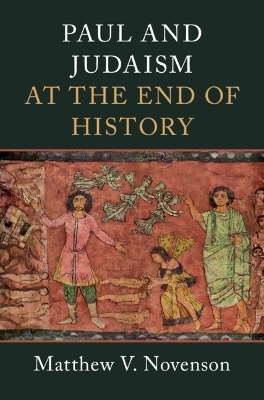
Paul and Judaism at the End of History
Seiten
2024
Cambridge University Press (Verlag)
978-1-316-51984-4 (ISBN)
Cambridge University Press (Verlag)
978-1-316-51984-4 (ISBN)
Aimed at scholars and students in New Testament studies, Jewish studies, religious studies, and Christian theology, this book reconsiders the letters of Paul in relation to both Judaism and Christianity, showing how Paul's belief in the imminent end of the world relates in complicated ways to each religion.
The apostle Paul was a Jew. He was born, lived, undertook his apostolic work, and died within the milieu of ancient Judaism. And yet, many readers have found, and continue to find, Paul's thought so radical, so Christian, even so anti-Jewish – despite the fact that it, too, is Jewish through and through. This paradox, and the question how we are to explain it, are the foci of Matthew Novenson's groundbreaking book. The solution, says the author, lies in Paul's particular understanding of time. This too is altogether Jewish, with the twist that Paul sees the end of history as present, not future. In the wake of Christ's resurrection, Jews are perfected in righteousness and – like the angels – enabled to live forever, in fulfilment of God's ancient promises to the patriarchs. What is more, gentiles are included in the same pneumatic existence promised to the Jews. This peculiar combination of ethnicity and eschatology yields something that looks not quite like Judaism or Christianity as we are used to thinking of them.
The apostle Paul was a Jew. He was born, lived, undertook his apostolic work, and died within the milieu of ancient Judaism. And yet, many readers have found, and continue to find, Paul's thought so radical, so Christian, even so anti-Jewish – despite the fact that it, too, is Jewish through and through. This paradox, and the question how we are to explain it, are the foci of Matthew Novenson's groundbreaking book. The solution, says the author, lies in Paul's particular understanding of time. This too is altogether Jewish, with the twist that Paul sees the end of history as present, not future. In the wake of Christ's resurrection, Jews are perfected in righteousness and – like the angels – enabled to live forever, in fulfilment of God's ancient promises to the patriarchs. What is more, gentiles are included in the same pneumatic existence promised to the Jews. This peculiar combination of ethnicity and eschatology yields something that looks not quite like Judaism or Christianity as we are used to thinking of them.
Matthew V. Novenson is Professor of Biblical Criticism and Biblical Antiquities at the University of Edinburgh. He is the author of, among other works, Christ among the Messiahs (2012), The Grammar of Messianism (2017), and Paul, Then and Now (2022).
1. The Christian problem of Paul and Judaism; 2. Paul's former occupation in Ioudaismos; 3. Who says justification from works of the law?; 4. Paul versus the Gentiles; 5. The legalism of Paul; 6. The ethnic chauvinism of Paul; 7. Carnal Israel; 8. Liberty and justice for all; 9. The end of the law and the last man.
| Erscheinungsdatum | 22.08.2024 |
|---|---|
| Zusatzinfo | Worked examples or Exercises |
| Verlagsort | Cambridge |
| Sprache | englisch |
| Maße | 159 x 235 mm |
| Gewicht | 670 g |
| Themenwelt | Religion / Theologie ► Christentum ► Bibelausgaben / Bibelkommentare |
| Religion / Theologie ► Christentum ► Kirchengeschichte | |
| Geisteswissenschaften ► Religion / Theologie ► Judentum | |
| ISBN-10 | 1-316-51984-8 / 1316519848 |
| ISBN-13 | 978-1-316-51984-4 / 9781316519844 |
| Zustand | Neuware |
| Haben Sie eine Frage zum Produkt? |
Mehr entdecken
aus dem Bereich
aus dem Bereich
Buch | Softcover (2021)
De Gruyter (Verlag)
CHF 45,90
wie wir uns unsere spirituelle Heimat zurückholen
Buch | Hardcover (2024)
Patmos Verlag
CHF 27,95


